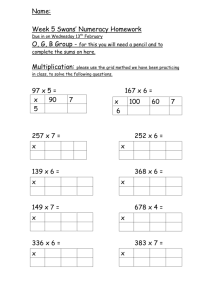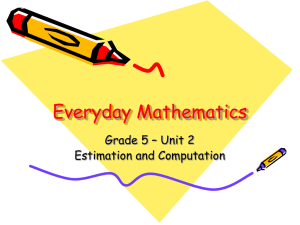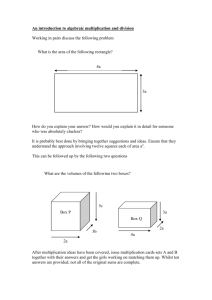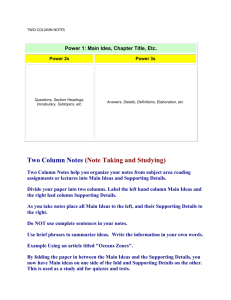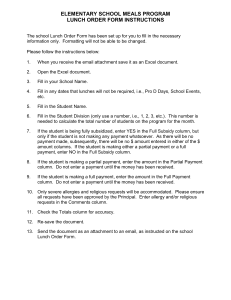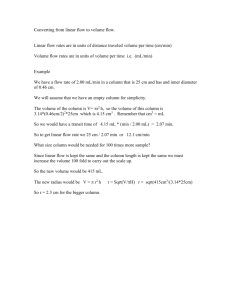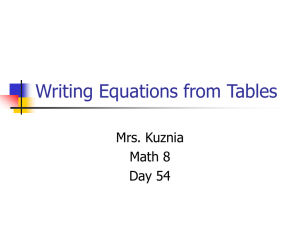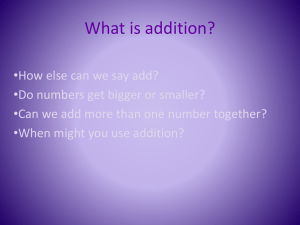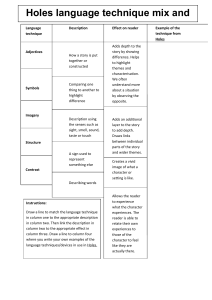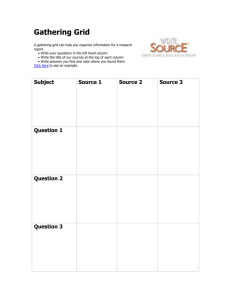Multiplication Methods
advertisement
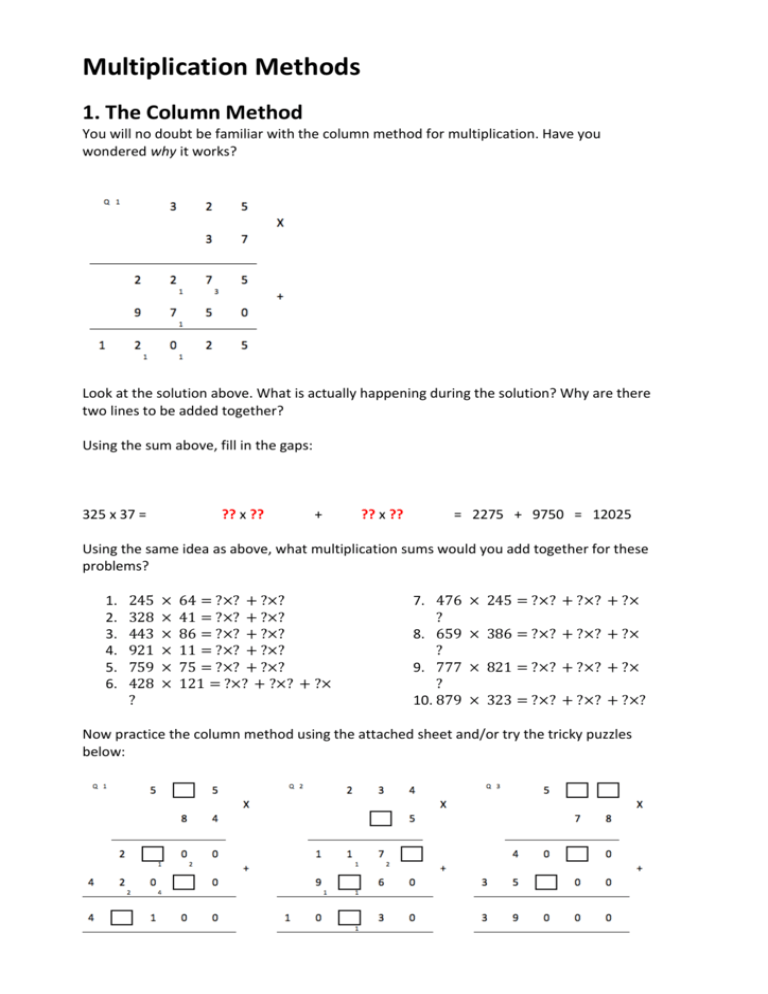
Multiplication Methods 1. The Column Method You will no doubt be familiar with the column method for multiplication. Have you wondered why it works? Look at the solution above. What is actually happening during the solution? Why are there two lines to be added together? Using the sum above, fill in the gaps: 325 x 37 = ?? x ?? + ?? x ?? = 2275 + 9750 = 12025 Using the same idea as above, what multiplication sums would you add together for these problems? 1. 2. 3. 4. 5. 6. 245 328 443 921 759 428 ? × × × × × × 64 = ?×? + ?×? 41 = ?×? + ?×? 86 = ?×? + ?×? 11 = ?×? + ?×? 75 = ?×? + ?×? 121 = ?×? + ?×? + ?× 7. 476 ? 8. 659 ? 9. 777 ? 10. 879 × 245 = ?×? + ?×? + ?× × 386 = ?×? + ?×? + ?× × 821 = ?×? + ?×? + ?× × 323 = ?×? + ?×? + ?×? Now practice the column method using the attached sheet and/or try the tricky puzzles below: 2. The Grid Method This method is very similar to the column method. Take a look at this example What was the original sum? Just like with the column method, the original sum is broken down into smaller sums, which are then added together. Complete the sum below using the example above: ?? x ?? = 20 x 30 + 20 x 5 + 6 x ?? + 6 x ?? = 910 Now practice the grid method using the attached sheet and/or try the tricky puzzles below: x 20 600 5 x 25 50 150 7 x 2 21 90 360 14 3. The Lattice Method Below is the lattice method for solving 24 x 36. This method may seem confusing at first, but again, it’s the same idea as the other methods. This video explains it very well. Each diagonal (dotted) line shows either the units, tens, hundreds or thousands. So 24 x 36 is broken down into: (4 x 30) + (20 x 30) + (20 x 6) + (4 x 6) Try these lattice multiplications:
